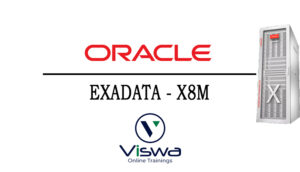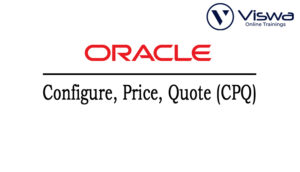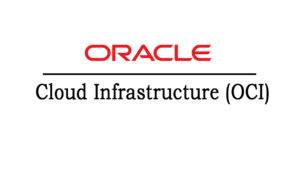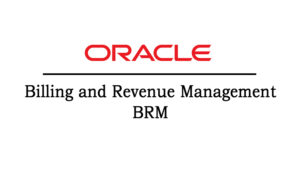Jenkins (DevOps) Certification Training
One of the top providers of online IT training worldwide is VISWA Online Trainings. To assist beginners and working professionals in achieving their career objectives and taking advantage of our best services, We provide a wide range of courses and online training.
Learners : 1080
Duration : 20 Days
About Course
Jenkins Online Training at its Best. Through high-value industrial projects and use cases, it is possible to learn the fundamental ideas behind Jenkins, including continuous integration, build and configuration tools, pipelines, continuous deployment, and more. You will pass the Jenkins Certification Exam without a problem with the help of our training techniques. Enrol today to earn your certification.
Jenkins Training Course Syllabus
| Live Instructor Based Training With Software |
| Lifetime access and 24×7 support |
| Certification Oriented content |
| Hands-On complete Real-time training |
| Get a certificate on course completion |
| Flexible Schedules |
| Live Recorded Videos Access |
| Study Material Provided |
Jenkins Training - Upcoming Batches
Coming Soon
8 AM IST
Coming Soon
AM IST
Coming Soon
8 PM IST
Coming Soon
PM IST
Don't find suitable time ?
CHOOSE YOUR OWN COMFORTABLE LEARNING EXPERIENCE
Live Virtual Training
-
Schedule your sessions at your comfortable timings.
-
Instructor-led training, Real-time projects
-
Certification Guidance.
Self-Paced Learning
-
Complete set of live-online training sessions recorded videos.
-
Learn technology at your own pace.
-
Get access for lifetime.
Corporate Training
-
Learn As A Full Day Schedule With Discussions, Exercises,
-
Practical Use Cases
-
Design Your Own Syllabus Based
Jenkins Training FAQ'S
It is a standalone, open-source automation server that may be used to automate a wide range of software development, testing, and delivery or deployment-related operations. Jenkins can be set up using native system packages, Docker, or even operate independently from other software on any machine that has Java Runtime Environment (JRE) preinstalled.
Continuous integration is a method of developing software whereby updates are incorporated into the core code as soon as they are complete, allowing for continuous building, testing, deployment, and monitoring of the project.
Continuous Delivery is a software development process in which, once all quality checks have been passed, updates that have been continuously integrated (CI) will be tested & delivered continuously into a particular environment, typically through a manual release procedure.
Continuous Deployment is a software development technique in which modifications that have been continuously integrated (CI) are automatically deployed into the target environment after passing all quality assurance tests.
Jenkins being open-source automation can be used for any kind of software-based automation. Some of the common use-cases include but not limited to –
- Software build jobs
- Sanity/Smoke/CI/Regression test jobs
- Web/Data Scraping related jobs
- Code coverage measurement jobs
- General-purpose automation
- Reverse Engineering jobs
- Key Decoding jobs & many other jobs where software automation will be applicable.
- Native System Package Manager like – apt (Linux), brew (Mac), etc.
- Docker (popular docker images for Jenkins is available for different platforms like Unix/Mac/Windows in the docker registry)
- Kubernetes (available as a helm chart and can be installed on our Kubernetes clusters)
- Standalone (on any machine with a Java Runtime Environment installed)
Declarative pipelines and scripted pipelines are the two types of Jenkins pipelines. With Scripted pipelines, the steps/stages can be custom-defined & used using a Groovy syntax, providing better control & fine-tuned execution levels. Declarative pipeline uses numerous, generic, predefined build steps/stages (i.e., code snippets) to build our job in accordance with our build/automation needs.
By learning through VISWA Online Trainings, advance in your job.
Reviews
Trustindex verifies that the original source of the review is Google. I have gone through the you tube videos and there concept is very clear. Easy to understand and even learn very strongly. I will keep in touch on you tube to get the knowledge.Trustindex verifies that the original source of the review is Google. Have a great and Happy learningTrustindex verifies that the original source of the review is Google. VISWA Online Trainings is an Online Live Training on Selenium with Python and Other part of IT training as well. Its is Really helping student on their career. VISWA Online Trainings is worldwide helping to students.Trustindex verifies that the original source of the review is Google. Course: SAP BW ON HANA October 2024 Batch Trainer: Anil My Feedback / Rating: very good to excellentTrustindex verifies that the original source of the review is Google. I recently completed the VISWA Online Trainings, and I must say it exceeded my expectations in every way. The instructors were incredibly knowledgeable and engaging, making even complex topics easy to understand. The course structure was well-planned, with a perfect balance of theory and hands-on exercises. I especially appreciated the practical insights and real-world examples provided throughout the training, which have already proven invaluable in my day-to-day work. Overall, I highly recommend this course to anyone looking to enhance their skills and knowledge in SCCM.Trustindex verifies that the original source of the review is Google. I was enrolled for Oracle RAC. Initially I was skeptical about it but after I spoke with the counselor all my doubts were clear. Training was really good instructor was knowledgeable and was able to understand and clear my doubts. I am happy with VISWA Online Trainings and would recommend to my friends and colleagues for any training and certification.Trustindex verifies that the original source of the review is Google. I am taking training from Chenna Reddy for Sap Commerce Cloud and He is very professional and explaining well.Trustindex verifies that the original source of the review is Google. VISWA online trainings is providing Very good training sessions. I have attended Azure devops classes ,well designed content ; Even I'm a fresher to this sector It's easy to understand all the concepts explained by Pavan Sir. Highly RecommendableTrustindex verifies that the original source of the review is Google. Data Modelling Chandrasekar Training, Chandra shared real time documents and training its helpful more.Trustindex verifies that the original source of the review is Google. Data Modelling Chandrasekar Training, Chandra shared real time documents and training its helpful more.




